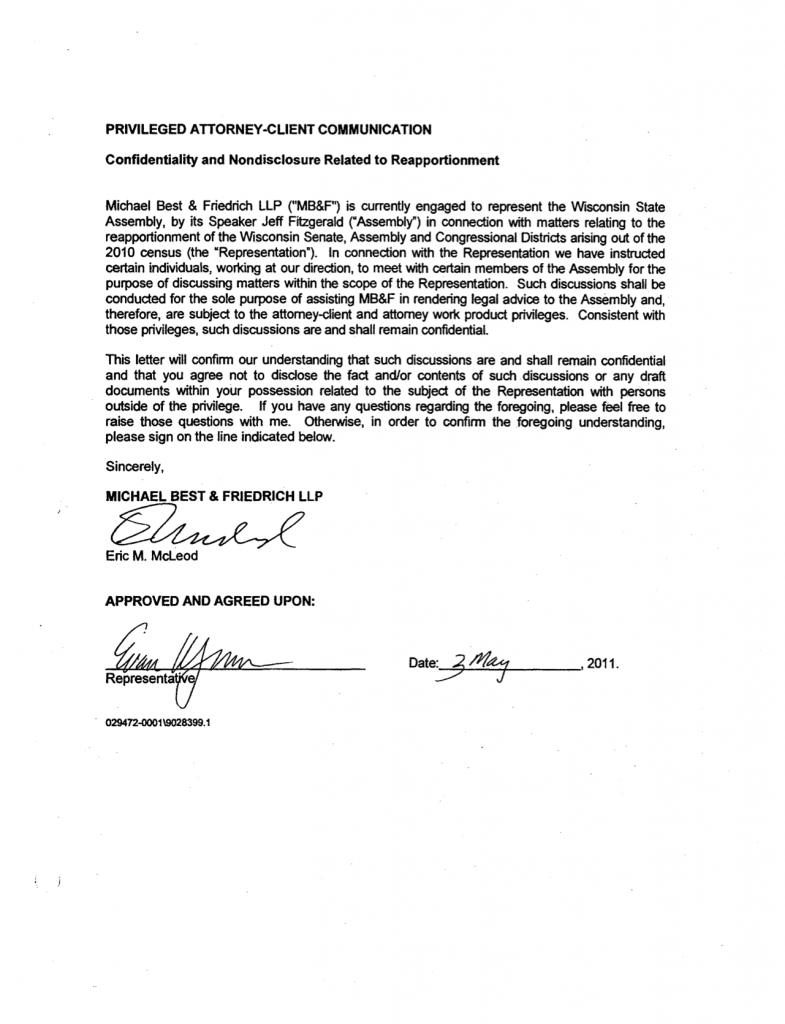A new legislator starts out with a promise of independent thinking, and with a clean slate before him. One hears that he’ll represent only his constituents, regardless of party, buck his own party whenever necessary, and stand only on principle. He’s photographed signing the legislator’s book, attending some civic events, and touts some (but not all) of his actions in a legislative newsletter.
The legislator comes to office after the decennial census, and so during a time of redistricting. There is no more public act than the design of legislative districts, through which citizens may elect their representatives.
The redistricting process is controversial, even more so than usual.
During the course of reapportioning districts, the majority party hires a private law firm, to help that party craft new legislative districts to its liking. It’s the most public of responsibilities, but that majority chooses a private firm, meeting at a private location outside the Capitol. The firm drafts and presents to the legislator and others a document to sign, promising that one of the most public, deliberative acts of government “shall remain confidential and that you agree not to disclose the fact and/or contents of such discussions or any draft documents within your possession related to the subject of the Representation with persons outside of the [attorney-client] privilege.”
What was by rights a public matter would become, for anyone signing, a secretive private one, between the legislator and a private law firm of one party’s choosing.
In that moment, the legislator and others confront a choice between the public interest and private partisanship. All the talk of independence, of bucking one’s party, and putting principle before party is then and there tested. Will they choose rightly, upholding the public interest, or wrongly, and succumb to the enticements of private parties?
Some choose wrongly.
A full account is available from the Milwaukee Journal Sentinel.

